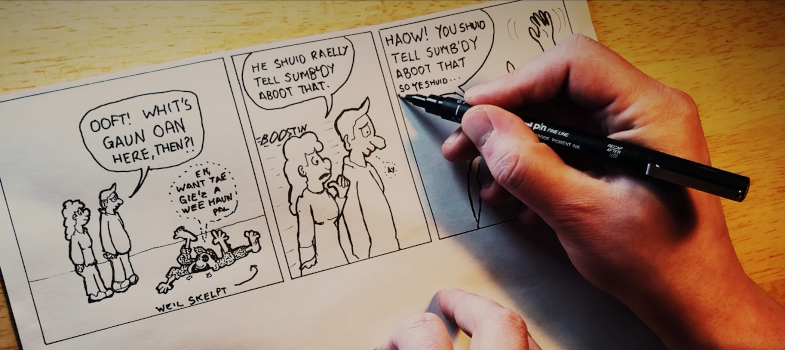Having embarked on this course, it will come as no surprise that my attitude towards teaching Scots is fairly positive. And, within the context of my school, staff and pupils are (on the whole) on board with the idea of promoting its use in order to increase engagement. This is particularly important in our setting since most of the cohort have attendance issues.
The audit made me think about the fact that as a school we don't formalise plans around Scots. I wonder if the reason for this is that we haven't thought of it as a distinct discipline, but then I wondered if that was really necessary. Where we have had some success in informal planning around Scots is by using texts such as Graeme Armstrong's 'The Young Team' and Ely Percy's 'Duck Feet' to encourage reading for pleasure. This has sometimes crossed into other areas such as Social Subjects.
In school, pupils are rarely "pulled up" for using their own vernacular in the classroom. I have to admit, I think we all get away with being less formal in our dialogue as it is not a mainstream setting and I also think that focusing on what our young people are saying rather than on how they say it helps with relationship building. Beyond the school setting I still sense stigma around the use of Scots and detect an air of snobbery from some who associate it with a lack of education.
The positives I can see coming from teaching Scots in my professional context include validating the language for our young people so that they don't feel embarrassed by it (still referencing the cultural cringe). Belonging is a tenet that underpins our school community and I hope that teaching Scots helps to strengthen pupils' identity and improve confidence.
